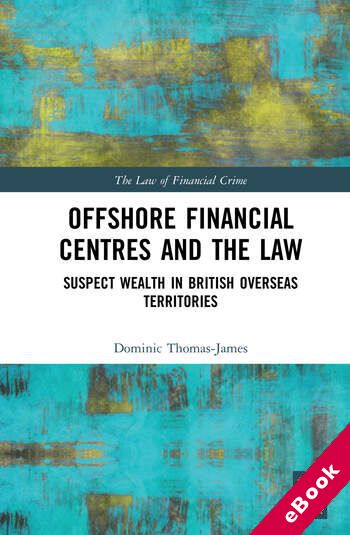
The device(s) you use to access the eBook content must be authorized with an Adobe ID before you download the product otherwise it will fail to register correctly.
For further information see https://www.wildy.com/ebook-formats
Once the order is confirmed an automated e-mail will be sent to you to allow you to download the eBook.
All eBooks are supplied firm sale and cannot be returned. If you believe there is a fault with your eBook then contact us on ebooks@wildy.com and we will help in resolving the issue. This does not affect your statutory rights.
This book considers the ability of island jurisdictions with financial centres to meet the expectations of the international community in addressing the threats posed to themselves and others by their innocent (or otherwise) facilitation of the receipt of suspect wealth.
In the global financial architecture, British Overseas Territories are of material significance. Through their inalienable right to self-determination, many developed offshore financial centres to achieve sustainable economic development. Focusing on Bermuda, Turks and Caicos, and Anguilla, the book concerns suspect wealth emanating from financial crimes including corruption, money laundering and tax evasion, as well as controversial conduct like tax avoidance. This work considers the viability of international standards on suspect wealth in the context of the territories, how willing or able they are to comply with them, and how their financial centres can better prevent receipt of suspect wealth. While universalism is desirable in the modern approach to tackling suspect wealth, a one-size-fits-all approach is inappropriate for these jurisdictions. On critically evaluating their legislative and regulatory regimes, the book advances that they demonstrate willingness to comply with international standards. However, their abilities and levels of compliance vary. In acknowledging the facilitatively harmful role the territories can play, this work draws upon evidence of implication in transnational financial crime cases. Notwithstanding this, the book questions whether the degree of criticism that these offshore jurisdictions have encountered is warranted in light of apparent willingness to engage in the enactment and administration of internationally accepted laws and cooperate with international institutions.